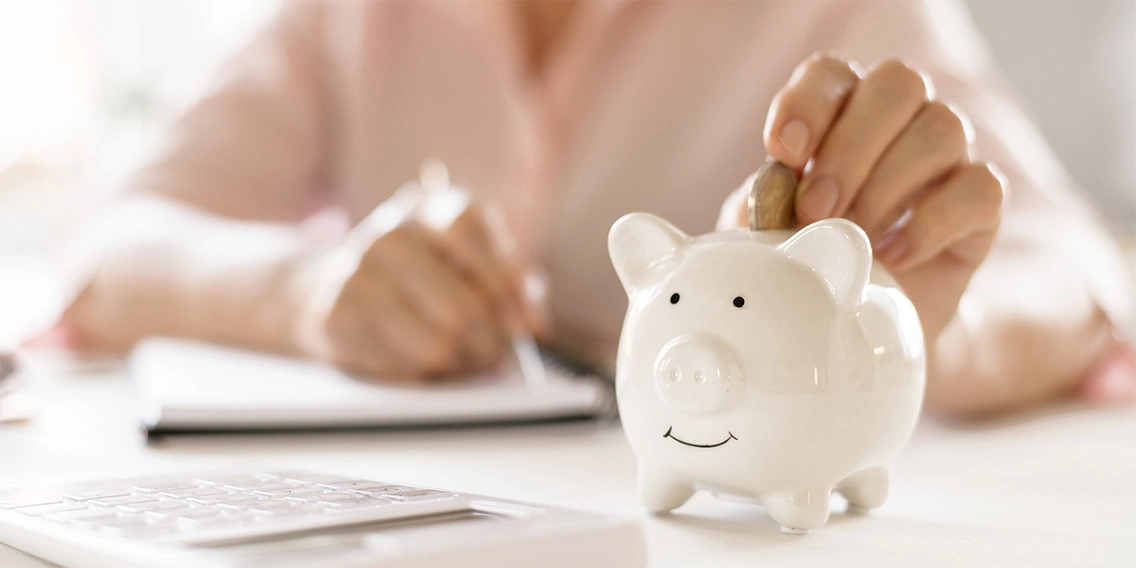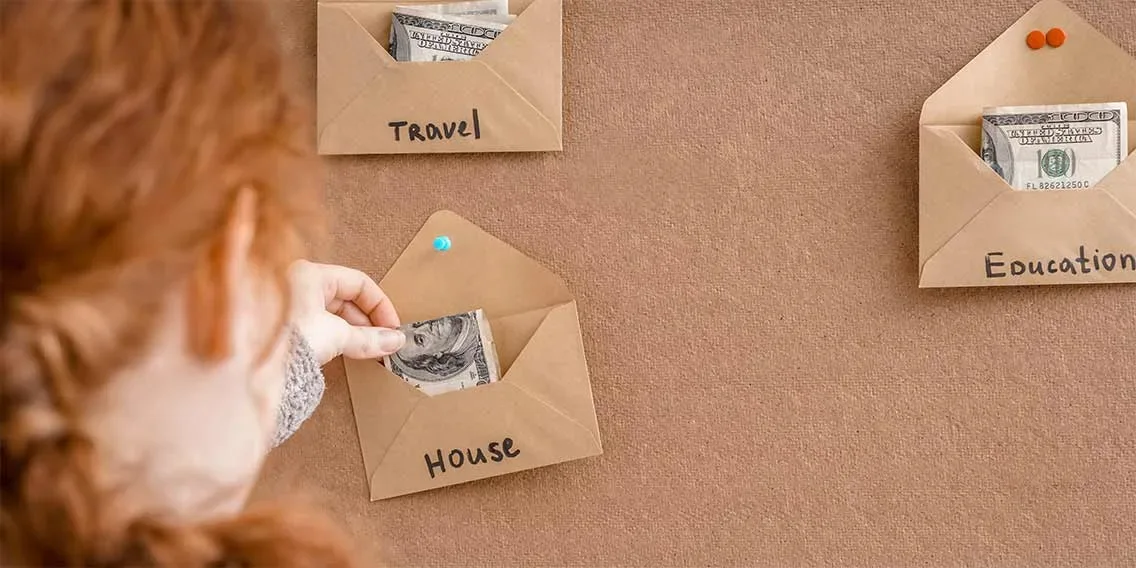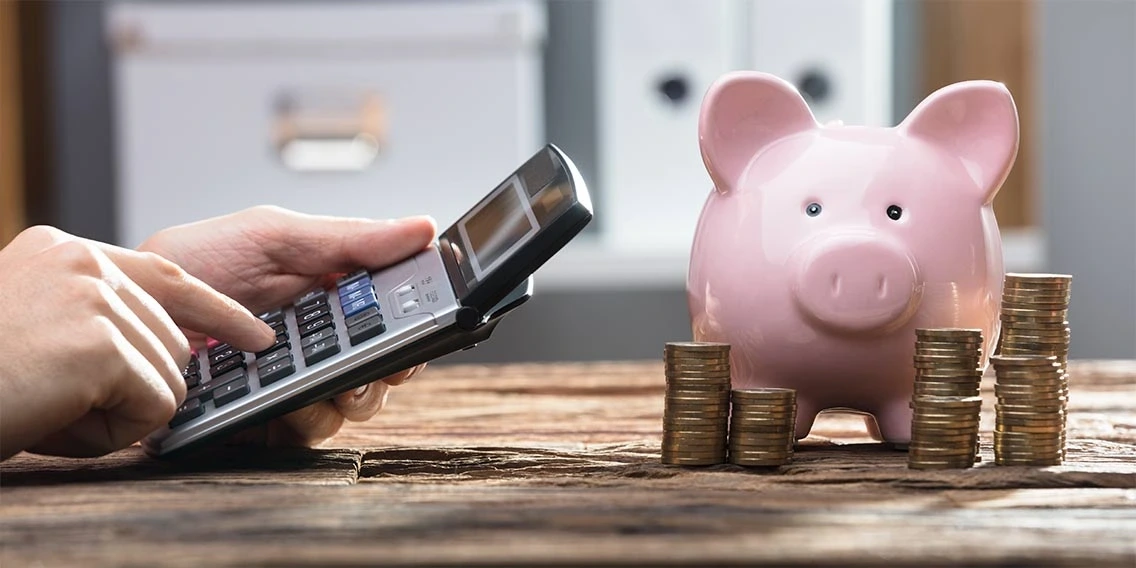Finance
How to Prepare for and Survive a Recession
EXPECTED READ TIME: 8 MINUTES
What is a recession and how does it affect you? This video reveals some steps for minimizing how a recession impacts you.
“How to Prepare for a Recession” 2-minute Video Transcript:
A recession happens when a country’s economy slows down for two or more months in a row. This can lead to higher unemployment, investment losses, and difficulty accessing credit.
Hearing the word “recession” might make you feel powerless, but there are actually steps you can take to minimize how much a recession impacts you.
The first step to preparing for a recession is understanding how much money you have coming in and where it goes. Start by adding up all your sources of monthly income, then add up all of your monthly expenses. There are different budgeting strategies you can try. It’s important to find one that works for your personal financial situation.
An emergency fund is money set aside for serious unexpected expenses like job loss, car repairs, or medical emergencies. Your emergency fund can help you avoid debt during a recession if you lose your job or hours are cut. It can also help cover expenses during periods of inflation. Ideally, you should save enough to cover all of your essential expenses for 3-6 months.
Recessions can be expensive. Often, the cost of food and other necessities will go up. The Federal Reserve may also raise interest rates.
It’s easier to cope with these cost increases if you’re not carrying debt. It’s important to pay off any debt you can before entering a recession.
If you can’t fully pay off your debt, consider refinancing for a lower interest rate, or more manageable monthly payments.
You may need to cut expenses if times get tight. Create a list of your family’s expenses and decide which items are essential and which can be cut. It’s easier to make these decisions beforehand, then you’ll have time to review your list and get it just right.
It’s tempting to withdraw your money from investment accounts when the stock market dips, but in most cases, it’s better to leave your money where it is and continue making your normal contributions. Your assets might lose value during a recession, but you’ll likely recoup your losses once the recession ends.
Talk to your financial advisor early on if you have specific concerns.
Unfortunately, you can’t avoid recessions, but with a little planning, you protect yourself until the economy improves.
Learn more at PenFed dot org.
Recession is a scary word. You may not be able to define it, but you know it isn’t good news. The question is, how will a recession affect you? And more importantly, can you prepare for a recession?
The answer is absolutely! Read on to find out what a recession is, how long they last, and how you can protect yourself financially.
What We’ll Cover
What Is a Recession?
A recession is a substantial decrease in a country’s economic activity for two or more consecutive quarters. Consumers buy less, production slows, and the overall value of the economy decreases.
Recessions and the GDP
An economy’s health is measured in part by its Gross Domestic Product (or GDP), which is the total value of finished goods and services during a specific period of time. (Finished goods are things you can buy, such as cars, houses, or groceries. Services might include things like daycare, TV streaming services, or medical care.)
Recessions are a regular part of our modern economic system.
When people have more money, businesses can charge more for their goods and services. But when people have less money — or they’re unwilling to spend money — businesses have to start charging less. That causes the value of a country’s GDP to decrease.
A chain reaction occurs when people stop spending money in an economy. If businesses can’t sell enough products, then they may stop hiring or even lay off employees. Businesses that sell merchandise will stop ordering as much stock, meaning factories will slow production. Factories that slow production won’t need as many workers. As people lose their jobs, they begin spending less. The whole economy slows down and a recession begins.
A study of recessions during 1980, 1990, and 2000 showed that companies who prepared for a recession actually saw big profits and growth once the recession ended.
Why Do Recessions Happen?
It’s hard to pinpoint one cause of recessions since they usually result from a combination of factors. Here are four common situations that contribute to recessions:
1. Poor Confidence in the Economy
A common factor in most recessions is loss of confidence in the economy. If people think the economy is getting worse, they’re less likely to spend money. They’ll stop investing and may even pull their money out of investments they already have. The economy may worsen as concern spreads.
2. Stock Market Crash
Many of us look at the stock market to see how well the economy is doing. Some experts question this, suggesting it’s a better measure of how people think the economy is performing than what’s actually happening. But regardless, people tend to worry when they see stocks losing value.
A bear market happens when a large number of stocks across multiple industries fall at least 20% from their most recent high. This fall happens quickly over the course of a few months. Bear markets don’t always lead to recessions, but they tend to shake people’s confidence in the economy.
3. High Interest Rates
Another cause of recessions: high interest rates. People are less likely to use credit when interest rates are high because using credit becomes more expensive. Fewer people will buy houses and cars, take out loans, refinance debt, or use credit cards when interest rates are high.
4. Falling House Prices
Falling house prices can have a similar impact as high interest rates. When the value of people’s homes drops, they lose equity and can no longer take out second mortgages. That means they’ll likely wait to make home improvements, consolidate debt, or cover college costs for themselves or their kids.
Who Declares a Recession?
The National Bureau of Economic Research (NBER) declares the beginning and end of a recession. The NBER is a private, nonpartisan, nonprofit research organization. Founded in 1920, its job is to provide economic research to politicians, businesses, and academics.
According to the NBER, a recession happens when:
- The GDP declines
- Real income (what families have after adjusting for inflation) declines
- Unemployment increases
- Industrial production and retail sales slow drastically
- Consumers spend less money
What’s the Difference Between a Recession and a Depression?
The difference between a recession and a depression is the length of time and severity of economic decline.
Recessions are short, usually lasting an average of 10 months. In addition to the GDP slowing, income, employment, manufacturing, and retail sales usually decrease during a recession.
A depression is similar to a recession, but it lasts longer and is more severe. The only depression in U.S. history, the Great Depression, lasted for ten years and its effects were felt for decades.
The chart below compares the economic loss during the Great Depression to the economic loss during the last three major recessions. As we can see, the country’s GDP shrank three times as much during the Depression and unemployment was two-and-a-half times higher than in the most recent recession.
| Economic Event |
Gross Domestic Product (GDP)/ Unemployment Rate |
|---|---|
| 1Great Depression (1929-1938) |
GDP declined by more than 10% Unemployment: 25% |
| 2Gulf War Recession (1990-1991) |
GDP declined by 1.5% Unemployment: 6.8% |
| 2Dot-Com Bubble (2001- 2001) |
GDP declined by 0.3% Unemployment: 5.5% |
| 1Great Recession (2007-2009) |
GDP declined by 3.1% Unemployment: 10% |
Are We Going Into a Recession?
While we’d love to gaze into our crystal ball and give you a perfect answer, we can’t. And right now, the indicators aren’t very clear.
Inflation — an increase in the cost of goods and services while income stays the same — is one measure of a recession. In May 2022, inflation reached a 10-year high of 8.6%, the highest since December 1981. The U.S. economy also shrank by 1.4% in the first quarter of the year. Together, these factors have people worried that a recession is coming.
But on the other hand, other signs suggest we might not be heading into a recession. Recent government data shows the unemployment rate has dropped to 3.6% and there’s evidence consumers are spending money right now.
The key to weathering a recession is not to focus on the economy but to focus on your own financial situation.
What Does a Recession Mean for Me?
It’s hard to know exactly how a recession will impact you since that depends on a number of factors unique to your situation. But in general, recessions impact people in a few ways:
- Unemployment levels rise. People are more likely to lose their job and may struggle to find a new job. Those who have jobs may see cuts to their pay and benefits.
- Investments lose money. Stocks and bonds can lose value, which may affect your retirement accounts. Even investments like real estate can lose value. While all of these assets can regain value after a recession ends, it may take years to recover what was lost.
- Credit becomes scarce. Lending is especially risky during a recession, so lenders will reject more applicants and may charge higher interest than usual.
- Businesses will close. Small businesses are most likely to be affected by a recession.
How Do You Prepare for a Recession?
Just thinking about a recession might feel overwhelming and beyond your control, but there are lots of things you can do now to prepare for economic blips. And the good news is that many of these things come down to basic financial wellness. The key to weathering a recession is not to focus on the economy but to focus on your own financial situation.
There’s evidence to show that preparation pays off, too. A study of recessions during 1980, 1990, and 2000 showed that companies who prepared for a recession actually saw big profits and growth once the recession ended. And while it’s unlikely a recession will be good for you, thinking ahead can definitely soften any blows. Here’s what you can do:
- Create a budget. You need to understand how much you earn and where that money goes before you can take any other steps to prepare for a recession. It may take a little time, but you can create a budget in just a few simple steps. Check your budget at regular intervals and adjust as needed.
- Start or build an emergency fund. An emergency fund is savings you only use in case of true emergencies like job loss or medical expenses. Ideally, you should save enough to cover three to six months of expenses. Saving that much takes time, so start today.
- Pay off debt. You don’t want to worry about managing debt during a period of inflation, and paying down your debt could get harder if interest rates rise. Create a plan to pay off your credit cards or explore debt consolidation to make your debt more manageable. Prioritize paying off expensive debt (like credit cards) over student loans or mortgages, which tend to have lower interest rates.
- Decide what you can cut. We all have extras we spend on like entertainment, hobbies, or name-brand products. Consult with your family and make a list of things you can cut if necessary. This doesn’t have to be depressing — there are lots of ways to cut costs and still have fun.
- Improve your credit score. A solid credit score is even more important when credit is scarce. A recession is a good time to review your credit report and decide how you can improve your financial situation.
- Invest in your career. Learn new tasks at work, develop new skills, or spend time on professional development. Brush up your resume and professional job site profiles. This way you’ll be ready if you need to find a new position.
- Don’t neglect your investments. Most financial advisors encourage us to ride out bad markets. While your 401(k) might take a hit during a bear market, over time most people will recoup those losses. Investing consistently over time in diverse assets usually has the biggest payoff. However, if you’re close to retirement or have questions about certain investments, now is a good time to talk to your financial advisor.
The Takeaway
Unfortunately, recessions are a regular part of our modern economic system. The good news is that you have the knowledge and resources to prepare for them. With a little planning and discipline, you can use a recession as an opportunity to evaluate your finances and make improvements — and avoid the worst impacts of a temporarily bad economy.
Explore Savings Account Options with PenFed
Discover the diverse offering of products, services, and support available to our members.




